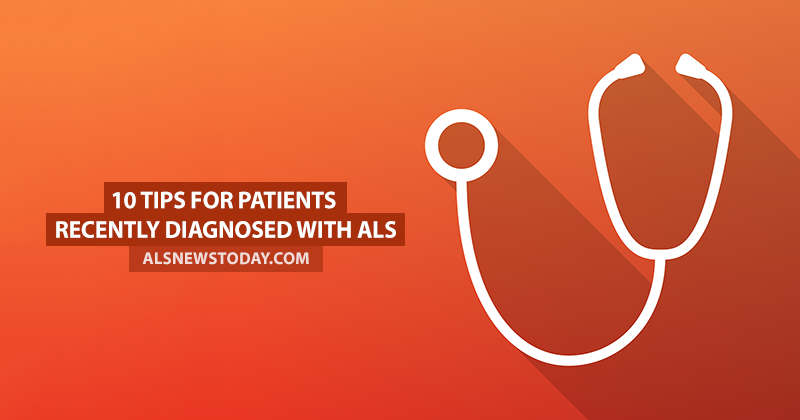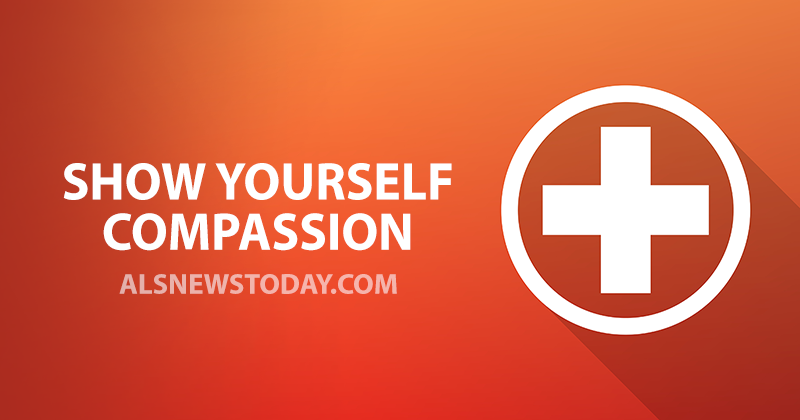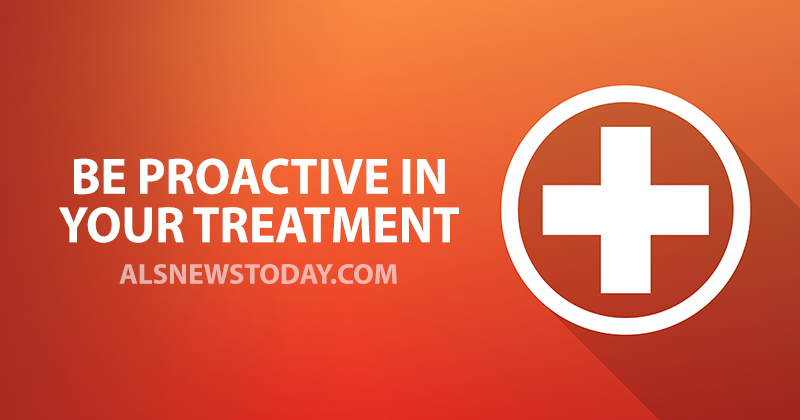10 Tips for Patients Recently Diagnosed With ALS
Written by |

Being diagnosed with amyotrophic lateral sclerosis (ALS) is a difficult and stressful time. You’ll probably feel incredibly overwhelmed in the first few days and weeks, and struggle to understand the ramifications involved. To help with the process, we’ve compiled a list of tips for patients who have recently been diagnosed with ALS based on information from the ALS Association.
You will go through a whole host of different emotions in the first few weeks, from fear to anger, denial to grief. This is completely understandable and you need to give yourself time and space to do this. Be kind to yourself, tell yourself that this is a normal response and that the darkness you’re feeling will pass and you will start to feel more positive soon.
Discover seven facts about ALS you might find interesting.
You are going to need your friends and family around you. Not only to offer physical help but also to offer emotional support. Building a good support team is essential to carry forward, not only to offer you choices but also to give your primary caregiver a break when necessary. Don’t be afraid to ask for help when you need it, people will be happy to help make life easier for you.
A prison chaplain shares his ALS story.
Find out as much about ALS as you can. Read online medical journals, websites, information about medication, treatments, alternative therapies, clinical trials etc. The more you know, the more prepared you can be.
Find out what the role of motor neurons are in ALS.
It’s more important than ever to start adopting healthy lifestyle changes: if you smoke, quit; eat a healthy balanced diet; take up activities that will help to relieve stress such as yoga or meditation; make sure you get plenty of rest. Ask your doctor about supplements you can take.
Study validates the use of social cognitive measure in ALS patients. Read more here.
Make sure you find the best doctors available who can treat your condition, find out about clinical trials and new treatments, ask lots of questions and get the answers. Research thoroughly and ensure you have the best team around you who are completely up to date with ALS.
Discover six ALS therapies that can improve quality of life.
The ALS Association is affiliated with many of the country’s ALS clinics. These clinics will have the experience needed to treat your ALS and will offer a multidisciplinary approach to look after every aspect of your health.
Did you know that technology can improve communication between ALS patients?
Write a bucket list of all the activities you want to do and places you want to see and try to do as many of them as you can.
Meet a young artist with ALS who talks about how she’s adapted the way she paints.
You may not want to do this straight away, but as you come to terms with your condition you might want to reach out and support others who have been newly diagnosed or simply raise awareness and money for ALS.
Meet pastor Kevin Kinchen, who hasn’t let his ALS diagnosis get in the way of inspiring others.
We know this is easier said than done, but allowing yourself to think negatively will only make the time you have miserable. Try to live each day as best you can and enjoy each moment and remember, scientists and researchers are constantly working to find better treatments and ultimately a cure for ALS.
Did you know that there’s a robotic glove that improves mobility for ALS patients?
Anticipating what you’ll need for the next step of your disease will help you maintain control. Get equipment (such as feeding tubes, communication devices, respiratory support etc.) before you actually need them, rather than waiting until you do. This will help you get used to the equipment and be able to better utilize it.
Read more about respiratory options and decisions for ALS patients.
ALS News Today is strictly a news and information website about the disease. It does not provide medical advice, diagnosis or treatment. This content is not intended to be a substitute for professional medical advice, diagnosis, or treatment. Always seek the advice of your physician or another qualified health provider with any questions you may have regarding a medical condition. Never disregard professional medical advice or delay in seeking it because of something you have read on this website.















